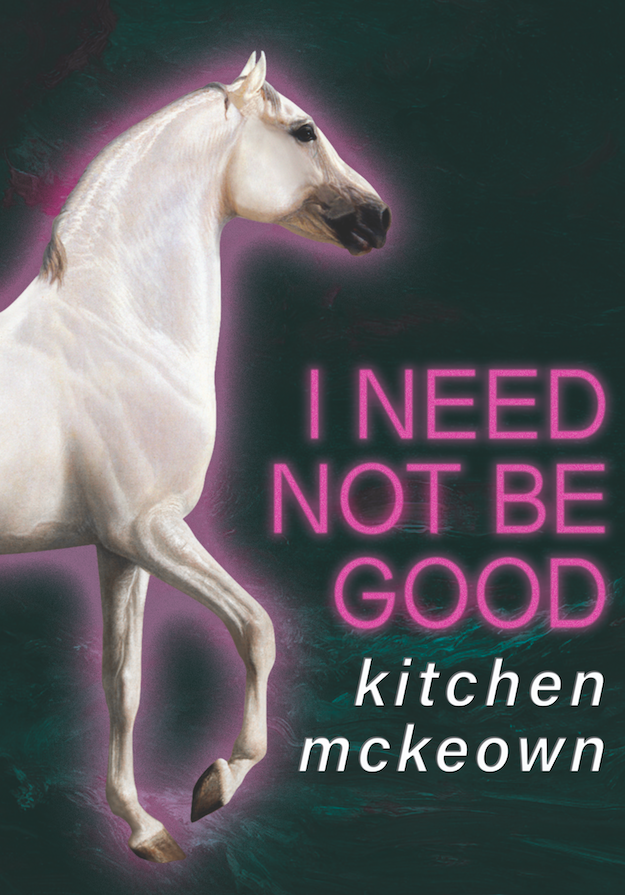Reading I Need Not Be Good is like listening to a wild west troubadour singing tales of constant yearning and joyous embodiment. Kitchen mckeown touched every part of my transmasc heart’s desire to sit under a prairie sky amongst fellow cowboys, telling stories of our adventures illuminated only by the glow of fireflies. These poems are viscerally raw, intimate, and sticky — they touch every inch of you in a way you can’t wash away. I can’t shake how it felt to read the longest work in the collection — ”Shame is a White Horse” — which takes the narrative of Red Dead Redemption 2 and transforms it into a poem that reads like an epic. “I would give anything to be loved in this body” sings the poem’s speaker, and I couldn’t help but think of all the times I’ve longed for the same. Anyone can and should read mckeown’s collection in all its magical, lyrical, glory, but I have to think for trans readers like myself — I Need Not Be Good might make you feel held like white horse by its adoring owner. It might offer you, as it offered me, a “world that exists for you. Just for you”.
I Need Not Be Good is an ebbing and flowing tide of ecstasy and ache. The eponymous poem that concludes the collection includes “take everything”, as a repeating refrain. Take everything is a demand that one both soak in life as it comes and also never fully sate a longing for something more — as mckeown writes, “i accept such longings / and with them, the great mystery that is survival. / the door to the mountains opens / and my thirsty mouth fills with snow.” To survive in this world one must swallow snow — which at once melts into nourishing water while frost-burning the imbiber’s lips — one must be filled with the joy of survival and yet never be adequately sated. This push and pull returns in “It’s So Gay to Love the Country,” a poem that appears early in the collection. The tenderness of a new lover whispering “my sweet boy” to the speaker serves as the ecstasy to contrast the ache of transphobic comments made by a partner over the phone of which the speaker claims, “it’s so gay to fall out of love on the phone.” As a gay transmasculine person, to say I reveled in this poem is beyond an understatement — I couldn’t stop hearing myself in mckeown’s words as their poetry offered me a new kind of folklore — new creation myths of selfhood.
Mckeown is a masterful storyteller who will suck you into their lush and intimate history of self that is as “butch as wind in the trees / butch as golden hour swims / butch as soft and fearless mornings.” Throughout I Need Not Be Good, lines and stanzas conclude abruptly yet flow into the words that follow, often offering the reader passages left undefined and filled with infinite potential. In their poem “Transpoetics,” mckeown will leave you to reckon with lines like “my dream body is a / god only knows;” “my body is a” is left inconclusive and unfinished — a self in flux — only to be contrasted with the possibility of “my body is a god,” an assertion of bold and beautiful transgender divinity. These deliciously uncertain potentialities that mckeown embeds throughout the collection are what made I Need Not Be Good a collection that I cannot stop returning to, flipping through its pages over both with my fingers and in my mind. In these pages filled with queer cowboy country imaginaries, mckeown invites you to a place by the campfire to listen their trancendent tales of embodiment — say yes.
— Fred O. Beeby


